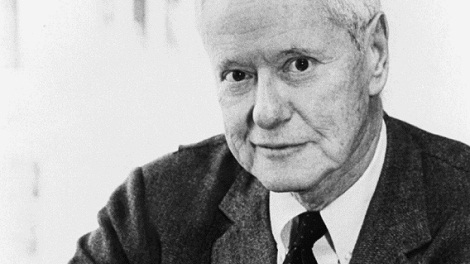
Codes
The year is 1942. Sociologist Robert Merton, realising that science is not immune to the insanity that holds the world in its grip, publishes a paper in which he sets out the scientific ethos: the norms that scientists live by. Science is still mostly a haven of moral rectitude – Merton notes the “virtual absence of fraud in the annals of science” – but the attacks on the integrity of science are mounting. To protect itself, science needs to examine its foundations. You can only defend your integrity if you know what you stand for. It is time to codify the scientific ethos.
“You can only defend your integrity if you know what you stand for. It is time to codify the scientific ethos.”
Fast-forward seventy years, to the present. The world may be a relatively peaceful place compared to 1942, but fraud is all over the annals of science. The need to formulate the ethical foundations of science seems more pressing than ever, and academic administrators have responded by commissioning a multitude of protocols, regulations, and codes of conduct. In The Netherlands, the scientific code of conduct of the VSNU, the organisation of Dutch universities, has become the main formulation of the scientific conscience. For example: in the “results and development interviews” at our university, we are supposed to discuss the VSNU code with our superior and then tick a box on the form to indicate we know what the code says.
Five principles worth thinking about?
The VSNU code is, at first sight, a rather boring document. Its five principles of proper scientific conduct fail to stick in your mind – each year when I prepare my lecture on research ethics I have to look them up again. Scrupulousness, reliability, verifiability, impartiality, and independence are obvious virtues. I could make a case for partiality as an indispensable motivation for scientific work, and I’m not sure what to think of verifiability (what about falsifiability?), but as a formulation of a common sense view of science the code can’t be faulted. It’s just a bit boring.
Scratch beneath the surface however, and the VSNU code is more interesting than its insipid principles suggest. First of all, some of the “best practices” that the code offers as concrete examples of the five principles are at some remove from the actual practice of scientific research. “Speculation spurred by results of scientific research” is not always “recognizably presented as such”. Not all raw research data are stored for five years, or “made available to other scientific practitioners at request”. Scientific practitioners do not always mention and explain competing viewpoints. The five principles may articulate what we all know, but the best practices do not describe what we all do, and they’re all the more interesting for it.
The further you read in the code of conduct, the murkier things become. The document ends with a series of dilemmas that make clear that in the daily work of scientists the principles and best practices do not always offer clear guidance. Each dilemma ends with a question (e.g., “May his colleagues expect him to lower his standards?”) and although in some cases you may think the answer is clear enough (“Of course not!”), others are debatable. Should you always be scrupulously honest in your letters of reference? Should you never modify a research proposal to suit the theoretical preferences of the people you suspect will review it? Despite the clarity of the five principles, there are grey areas in academic work, where opinions may differ about what is ethical or how wrong something really is.
“Despite the clarity of the five principles, there are grey areas in academic work, where opinions may differ about what is ethical or how wrong something really is.”
This back end (so to speak) of the VSNU code of conduct is more interesting than the trivial principles at the front. Most important, I think, is its implicit lesson that there is a lot to discuss and talk about in the ethics of academic work. I suggest we forget those five principles (you have already, I’m sure), and focus on the grey areas. The more we talk about fraud and other obvious offences, the more difficult it is to discuss practices that are less serious or not so clearly wrong. No one wants to ask questions when every question is taken as an accusation, no one will admit errors when every error is a potential crime. Codes are useless as definitions of proper conduct, but they can be very helpful in reflecting on actual practice and the ethical dilemmas we may find ourselves in. And I think that’s what Merton wanted us to do.




Sounds a bit like the Code of the Order of the Brethren in Pirates of the Caribbean, doesn’t it?
“… and thirdly, the code is more what you’d call “guidelines” than actual rules” (see http://bit.ly/RX7ow4)
Maybe we need to start acting a bit more like pirates?.. Or, well, perhaps not. 😉
I don’t think the VSNU would quite put it that way, but: ‘These best practices, which provide a certain set of norms for the conduct of teachers and researchers, reflect the national and international understanding of good scientific teaching and research. Under particular circumstances, deviation may be justified. The applicability of the provisions depends on the concrete circumstances under which the scientific practitioner operates. Moreover, the circumstances under which the university operates are also regularly subject to change. Nonetheless, every practitioner must, if required, be able to explain and motivate if – and if so, to what extent and why – he is at variance with the best practices of the university Code of Conduct (the rule “apply or explain”).’
Jack Sparrow could live with that, I think.